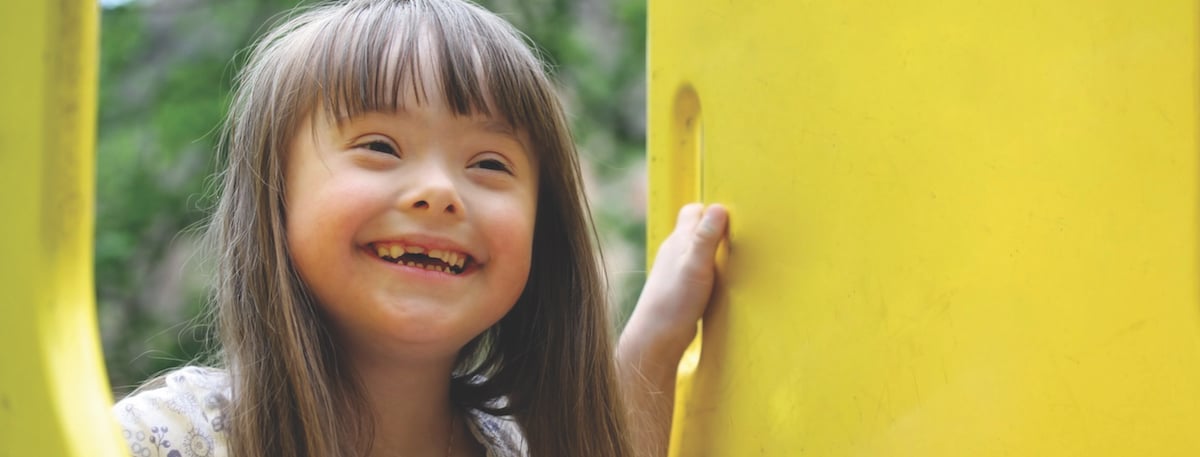
Preparing Your Child for Kindergarten
How to Prepare Your Child with Disabilities for Kindergarten: Tips for Parents
Kindergarten is a big step in any child’s life. For a child with disabilities, being ready for that step often requires some intentional preparation. By working with your child’s Individualized Education Program (IEP) team, you can plan for your child’s success and make that first school experience a good one.
Use the IEP Team to Plan for Success
Planning for your child’s entrance into kindergarten can begin as early as a year ahead of time. You can start the process by asking the IEP team to discuss what skills your child will need to succeed and what IEP goals would move your child in that direction. The IEP team can suggest home-based activities you can use to help your child develop kindergarten skills. It also can recommend community resources if needed.
In the spring before your child starts kindergarten, you can begin to consider specific school choices. Your IEP team can tell you more about options in your area. Many districts have “kindergarten roundup” events so families can check out programs at different schools. Other districts assign children to a kindergarten in a specific school based on geographic location. If you look at a school in the spring, remember that the children you observe are at the end of their school year and their skills will be more advanced than those of a child just beginning kindergarten.
Know the Signs of Kindergarten Readiness
Kindergarten readiness isn’t about being able to read, write, do math, and know science. Teachers say that kindergarten readiness is really about having basic communication skills and a good attitude.
They recommend that children entering kindergarten have the ability to:
- communicate wants and needs
- share and take turns with others
- be an enthusiastic learner
- pay attention and sit still
- use a pencil and paintbrush
- count up to 20
- recognize the letters of the alphabet
Decide if Your Child is Ready
If you feel that your child may not be ready for kindergarten, talk with your IEP team and together you can weigh options. Remember, your child doesn’t need to have every skill in order to succeed in kindergarten. In fact, kindergarten experiences such as interacting with typical peers may actually help your child build skills. If you disagree with the IEP team about your child’s abilities, you may use a variety of dispute resolution processes. These include conciliation and mediation.
Prepare Your Child for Kindergarten
Once you’ve decided to enroll your child in kindergarten and are working on readiness skills, you can make your child’s transition easier by doing the following:
- Have your child visit the classroom and meet the teacher before the school year begins.
- Take pictures of the school and classroom and use the pictures to talk with your child about starting kindergarten.
- Arrange summer play times with other students who will be in your child’s classroom.
- Read books with your child about kindergarten, such as:
- “David Goes to School” by David Shannon
- “Off to School, Baby Duck!” by Amy Hest
- “Vera’s First Day of School” by Vera Rosenberry
- “Look Out Kindergarten, Here I Come” by Nancy Carlson
Off to School: Preparing You and Your Child for the Transition to Kindergarten

When 6-year-old Chloe Alpaugh started kindergarten this past year, she didn’t even bat an eye when it was time for Mom and Dad to leave her side for the first time. For Mom and Dad, though, the shift from preschool to kindergarten for Chloe, who has Down syndrome and speech apraxia, was a little more complicated. The transition can be hard for any parent, but for parents of children with disabilities, it can be especially stressful. Bill and Susan Alpaugh began planning for their daughter’s transition a year prior to the start of kindergarten, while Chloe was still in preschool.
“Chloe’s transition was complicated by the fact that our district was re-districting their special education program at the time,” Susan says. “I was told by the school that Chloe may have to be bussed outside our neighborhood to another school with a special education program. That added a fair amount of stress to the process. I didn’t know what my rights were as a parent.”
Susan called PACER Center for information on her options to enroll Chloe in her neighborhood school, which also had a special education program. PACER’s early childhood advocate explained that the school would have to prove why Chloe could not be served there before it could require her to be bussed to another school. In the end, the Individualized Education Program (IEP) team, which included the parents, decided that Chloe would attend the neighborhood school. Chloe’s parents already knew the school and the kindergarten special education teacher well.
With that concern lifted, Susan and the team began writing Chloe’s IEP, which was due the April before kindergarten. The team spent time working through the IEP process to determine Chloe’s schedule and appropriate goals for her development. “Our PACER advocate helped us with that, too, and went through everything step by step,” Susan says. “She even attended the IEP meeting with me, which was wonderful.”
With Chloe’s IEP in place and the matter of where she would go to school decided, the rest of the transition process went according to plan. The kindergarten special education teacher observed Chloe at her preschool. Susan attended the school’s “kindergarten round-up” event. She and Chloe went to the summer open house and visited the kindergarten classroom so Chloe would feel comfortable on the first day of school. Looking back, the question of whether Chloe herself would be ready for kindergarten was never an issue, Susan says.
“We had more opportunities for Chloe to meet people and socialize before the start of kindergarten, but I didn’t feel she needed that,” she says. “She just couldn’t wait to go to school.”
The First Year
With Chloe’s kindergarten year behind her, Susan says the overall experience has been positive. It was a learning process, though, and some adjustments needed to be made to ensure Chloe could grow and learn as much as possible. For example, Susan and the IEP team changed Chloe’s schedule midway through the year so that she could start her day in the inclusive classroom and socialize more with her classmates.
“She loves going to school,” Susan says. “I’ve received consistent reports that she’s becoming more cooperative and understanding routines better. I want to keep her moving forward. I always want to set the bar high to see what she can do.”
As Susan reflects on her daughter’s first year of school, she’s grateful for the help she received from PACER, especially during the transition planning process.
“The PACER advocate was wonderful in keeping me grounded and focused on what my rights are and what the laws are,” Susan says. “She totally understands the process and gave me the support and documents that I needed. She was always there to answer any questions and was a huge help to me.
“All in all, this process is a journey,” she adds. “Many parents don’t have prior experience with this journey, but there are resources out there, and PACER is a great one.”
For more information on the transition from preschool to kindergarten for children with disabilities, call PACER Center at 952-838-9000 and ask to speak with a parent advocate.
